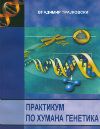Prof. Dr. Vladimir Trajkovski
ponedjeljak, 25.10.2010.
ATTITUDES AND OPINIONS OF EMPLOYERS, EMPLOYEES AND PARENTS ABOUT THE EMPLOYMENT OF PEOPLE WITH AUTISM IN THE REPUBLIC OF MACEDONIA
Tanja STANKOVA, Vladimir TRAJKOVSKI |
utorak, 19.10.2010.
Open Access Week
In order to promote Open Access at the Faculty of Philosophy, Institute of Special Education and Rehabilitation will organize a lecture in which Prof. Vladimir Trajkovski, chief-editor of Open Access Journal of Special Education and Rehabilitation (JSER) will present the journal to the wider audience. For more information about JSER visit http://jser.fzf.ukim.edu.mk/ |
subota, 16.10.2010.
Avicii & Sebastien Drums - My Feelings For You
|
srijeda, 13.10.2010.
Celiac Disease Presenting as Autism
Stephen J. Genuis and Thomas P. Bouchard |
ponedjeljak, 11.10.2010.
Array Comparative Genomic Hybridization Findings in a Cohort Referred for an Autism Evaluation
G. Bradley Schaefer, Lois Starr, Dianne Pickering, Gwenn Skar, Kristi DeHaai, and Warren G. Sanger |
Engaging with the self: Mirror behaviour in autism, Down syndrome and typical development
Vasudevi Reddy, Emma Williams, Cristina Costantini, and Britta Lan |
srijeda, 06.10.2010.
Intravenous Immunoglobulin Treatment of Children With Autism
Audrius V. Plioplys |
Neuropathological and Genetic Findings in Autism: The Significance of a Putative Minicolumnopathy
Manuel F. Casanova |
utorak, 05.10.2010.
Celiac Disease Presenting as Autism
Stephen J. Genuis, MD, FRCSC, DABOG, DABEM, FAAEM |
| < | listopad, 2010 | > | ||||
| P | U | S | Č | P | S | N |
| 1 | 2 | 3 | ||||
| 4 | 5 | 6 | 7 | 8 | 9 | 10 |
| 11 | 12 | 13 | 14 | 15 | 16 | 17 |
| 18 | 19 | 20 | 21 | 22 | 23 | 24 |
| 25 | 26 | 27 | 28 | 29 | 30 | 31 |
Travanj 2015 (1)
Rujan 2014 (1)
Ožujak 2014 (1)
Siječanj 2014 (4)
Listopad 2013 (3)
Ožujak 2013 (2)
Veljača 2013 (2)
Prosinac 2012 (1)
Studeni 2012 (1)
Rujan 2012 (2)
Kolovoz 2012 (1)
Srpanj 2012 (4)
Svibanj 2012 (1)
Ožujak 2012 (2)
Veljača 2012 (2)
Prosinac 2011 (1)
Rujan 2011 (2)
Kolovoz 2011 (4)
Srpanj 2011 (7)
Lipanj 2011 (1)
Svibanj 2011 (3)
Travanj 2011 (1)
Ožujak 2011 (5)
Veljača 2011 (2)
Siječanj 2011 (8)
Prosinac 2010 (3)
Studeni 2010 (2)
Listopad 2010 (9)
Rujan 2010 (2)
Kolovoz 2010 (3)
Srpanj 2010 (4)
Lipanj 2010 (1)
Svibanj 2010 (2)
Travanj 2010 (3)
Ožujak 2010 (3)
Veljača 2010 (4)
Siječanj 2010 (3)
Prosinac 2009 (1)
Studeni 2009 (5)
Listopad 2009 (3)
Rujan 2009 (13)
Dnevnik.hr
Gol.hr
Zadovoljna.hr
Novaplus.hr
NovaTV.hr
DomaTV.hr
Mojamini.tv
Opis bloga
- Info about medicine, special education and rehabilitation, autism spectrum disorders, Down syndrome, human genetics, medical basis of disability, physioogy, speech disorders
Linkovi
- Blogspot.com
Prof. Dr. Vladimir Trajkovski on Blogspot
JSER.fzf.ukim.edu.mk
JSER ONLINE
Blogspot.com
JSER Blog
JSER.FACEBOOK
JSER on FaceBook
MSSA.org.mk
Macedonian Scientific Society for Autism
MSSA.FACEBOOK
MSSA on FaceBook
FZF.ukim.edu.mk
Institute of Special education and Rehabilitation, Faculty of Philosophy, Skopje, Macedonia
Trisomija21.com
Trisomija 21
Dnevnik.hr
Video news portal Nove TV
Blog.hr
Blog servis
Forum.hr
Monitor.hr
Ordinacija.hr
- Prof. Dr. Vladimir Trajkovski on Facebook
Учебник Аутизам и первазивни развојни нарушувања
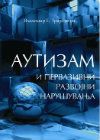
Учебник Физиологија со функционална анатомија на човекот
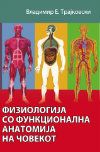
Учебник Медицински основи на инвалидноста

Физиологија со функционална анатомија
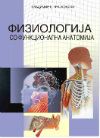
Учебник Хумана генетика
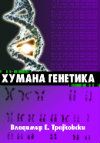
Книга Аутизам
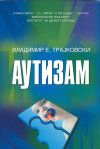
Практикум Хумана генетика
